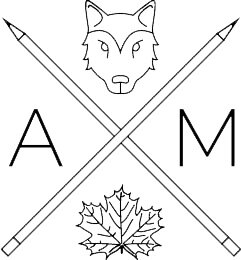In Which Adam Reveals Some of the Ways He Organizes His Life
I do a lot to organize the hazard of activity that is my life. I use four different apps (sometimes more), various notebooks, and a whiteboard. It’s a lot to manage and (let’s be honest) mismanage when it comes to juggling full-time work, full-time school, and personal research and writing projects. I wouldn’t have my life any other way though (okay, maybe add in a dog... maybe another human being... but only one of those is under my full control and currently not feasible in the flux of soon-to-graduate and seeking-future-positions mode that I’m in).
My whiteboard for this week.
The whiteboard is for a week-by-week quick look at the things I need to do. As you can see, I’ve partitioned my life into six different units. The first three—Sex, Gender, Sexuality; Women, Religion, Agency; Holocaust—are the three courses I’m in this semester. They mostly have readings due. The Data Science unit is an online certificate I’m getting through Harvard EdX. The Writing + Conferences is various chapters/parts of chapters I need to write, research I need to do for articles and conference presentations, and other things I need to do to prepare for those (I’ve averaged 2–3 conferences a semester while getting my master’s degree, so it’s become a lifeblood of my activity). The Other is for language learning, things I need to do around the house, people I need to get back with (so many emails that I still haven’t sent), and anything else that pops up like job applications and other activities.
Screenshot of my 2Do desktop app
2Do is my main app that keeps everything organized for a semester or a project. It’s basically my giant, all-encompassing checklist. As you can see in the image, I have three core groups—Classes, Work, and Projects—that have various lists under them. I place everything from the syllabus for each class into the Classes section and assign due dates, which keeps me organized for a semester. The Work and Projects groups create lists of things that I need to do to finish various work and personal projects.
In addition, I use Tags to generally track the part of a reading (if there are multiple chapters) and other things within the groups. As you can see from the image above, I'm not strict with this, but that's one of my cardinal rules of planning: don't force it. Right now, tags in 2Do aren't my thing, but they could be in a week or two days.
Reminders app, GoodTask app, Calendar app, and 2Do (all desktop versions)
I took this one from my mission. Every week, I do two weekly planning sessions: Monday night and Thursday night. Monday is to plan for Tuesday, Wednesday, and Thursday; Thursday is to plan for Friday, Saturday, Sunday, and Monday.
In these sessions, I use the 2Do app to see everything I need to do and then I bring that into my Reminders app to assign an hour each day for the next few days to an assignment. In tandem with the Reminders app, I use the GoodTask app, which brings together my Calendar and Reminders apps to show me what I have assigned when. This is so I don't assign something when I have class or work. This is also key because I assign a time to each of the items in my 2Do app, and then it pops up on my phone and reminds me to do something or other.
I also do nightly planning sessions, just in case anything needs to change for the next day. These are usually around 8 p.m., so I can do that, journal, and turn off my screens quickly. I also try to read for pleasure for thirty minutes to an hour every night (currently enjoying lesbian necromancers in space, a.k.a. Gideon the Ninth). I turn on my sleep story around 9–9:30 p.m. and go to bed, to wake up around 3 a.m. and head to the gym. (My daily, monastic lifestyle will probably be a different blog post someday.)
March 2020 habit tracker
In addition to apps, I track habits in my journal. I got this idea from Victoria Schwab, and I really enjoy doing it. Basically, you write out the month, and then you write out things you would like to do every day (but don’t necessarily have to be done every day). These are daily accomplishments so if ever I get discouraged I can look back and see that I’ve been working on my habits, even if I’m 100 pages behind on my reading.
So, for example, if I even read a little bit for class (no matter how much), I still mark it as complete for the day. I usually do check on all this at the end of the day when I journal some thoughts out.
It’s all a juggle, but that’s how I’m doing it right now. I change up every year (few months) or so, as I learn and try out new techniques. I think that’s a key thing to me: none of this is binding. Knowing that helps me be able to creatively flex and be malleable when it comes to various life circumstances.




